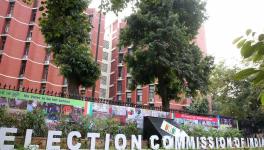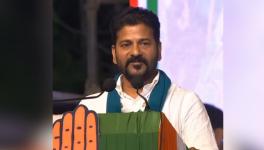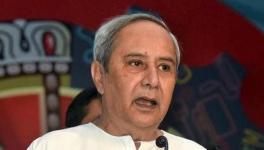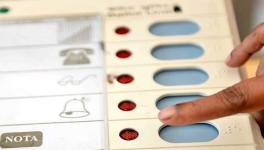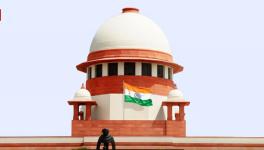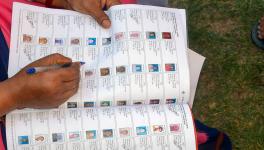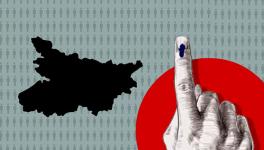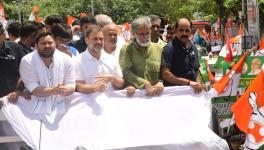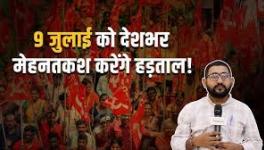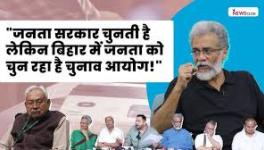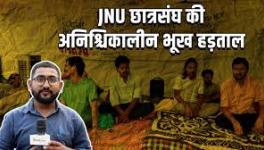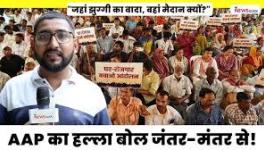Rahul Gandhi Alleges ‘Vote Chori’ in 2024 Polls, BJP-ECI Nexus in 'Systematic Electoral Fraud'
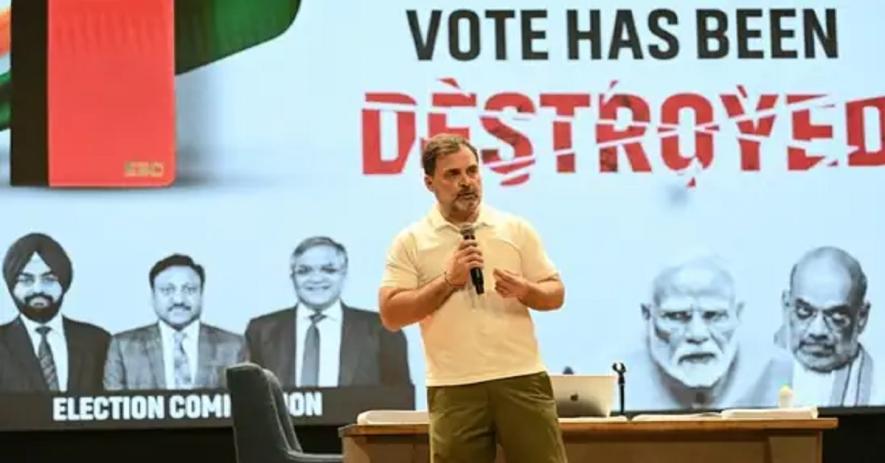
Image: hindustantimes.com
On August 7, 2025, Leader of Opposition Rahul Gandhi launched an explosive set of allegations against the Election Commission of India (ECI) and the ruling BJP, accusing them of colluding to manipulate the voter rolls and rig recent elections—including the 2024 Lok Sabha polls and Maharashtra Assembly elections.
Gandhi, in a detailed press conference held at the AICC headquarters in New Delhi, described the alleged irregularities as a systemic subversion of Indian democracy, claiming “massive-scale electoral fraud” or vote chori (vote theft) had taken place. He called this an “institutional crime against the Constitution.”
Key allegations and claims
The ‘Atom Bomb’ evidence
- Gandhi declared that the Congress has unearthed hard evidence of voter list manipulation after a six-month internal investigation.
- He asserted that 1 lakh fraudulent votes were cast in the Mahadevapura assembly segment of the Bengaluru Central Lok Sabha constituency of Karnataka alone.
Maharashtra Election: An alarming spike
-
Congress began suspecting vote rigging after the 2023 Chhattisgarh elections, but their fears were confirmed in Maharashtra (2024).
-
Over one crore new voters were added to Maharashtra’s electoral rolls in just five months—more than the total added in the preceding five years.
- Gandhi highlighted a suspicious surge in voter turnout after 5:30 PM, and the ECI’s refusal to release CCTV footage from polling booths, by unexpectedly changing rules to block access. (December 2024)
- “Why destroy evidence if nothing went wrong?” Gandhi asked, implying deliberate alteration of age old transparency driven laws/rules to prevent scrutiny.
Bangalore Central: A Case Study in ‘Vote Chori’
Focusing on the Bangalore Central Lok Sabha constituency, Gandhi said the Congress had anticipated a win based on internal surveys, but lost narrowly:
Margin: 32,707 votes
INC led in 6 out of 7 assembly segments, except Mahadevapura, where it lost by a staggering 1,15,586 votes.
Findings from Mahadevapura:
Congress’s detailed audit revealed:
Gandhi alleged that voters were registered multiple times—in the same constituency, across different states, and even using non-existent or zeroed addresses.
Example:
- 68 voters registered at a brewery (“Biere Club”).
- One voter, Shakun Rani, was registered twice in two months with slightly altered details and both entries cast votes. Ironically this woman voter (a mid-70 year old) was registered in the Form 6 batch of voters that are the ‘new voter’ category in ages 18-25 years!
Exit Polls vs Final Results: The growing mismatch
Rahul Gandhi further questioned:
- Why does anti-incumbency seem to affect every party except the BJP?
- Why are exit and opinion polls consistently off the mark in BJP’s favour?
- He noted similar suspicious swings in Haryana and Madhya Pradesh.
In Haryana:
- Congress lost 8 seats by a combined margin of only 22,779 votes—out of over 2 crore votes cast.
Nationally:
- BJP won 25 Lok Sabha seats with margins under 33,000 votes.
- “That’s all Modi needed to stay in power—just 25 seats,” Gandhi said.
Denial of Digital Voter Rolls: A deliberate barrier
Gandhi revealed that the ECI refused to share machine-readable voter rolls, instead providing physical documents that:
- Were over 7 feet tall when stacked.
- Could not be scanned using OCR (optical character recognition).
- Made manual verification virtually impossible.
“This is by design,” Gandhi alleged. “If the EC gave us electronically readable (searchable) digital data, we’d analyse it in 30 seconds. But they gave us deliberately un-scannable formats to stall scrutiny.”
Call for judicial oversight and constitutional accountability
- Gandhi called the EC’s actions a violation of its constitutional duty to safeguard elections.
- He urged the judiciary to intervene, declaring: “This is no longer just about one party’s loss. It’s a threat to the very foundation of Indian democracy—where every citizen gets one vote.”
He warned that the entire electoral process is being choreographed, facilitated by media hype, multi-phase polls, and an opaque EC.
Conclusion: A crisis at the heart of Indian democracy
Rahul Gandhi’s allegations go beyond partisan politics—they strike at the core of India’s democratic framework. If even a fraction of what he claims is true, it suggests that the electoral process, the one institution that legitimises political power, is compromised through a mix of bureaucratic opacity, voter list manipulation, and denial of digital transparency.
The Congress’s evidence-heavy exposé raises urgent questions:
- Why are electoral rolls being altered on such a massive scale without scrutiny?
- Why is the Election Commission refusing to provide machine-readable data, as required for transparency?
- Why were CCTV records from sensitive polling periods destroyed or withheld?
These are not just technical lapses—they are constitutional red flags. The principle of “one person, one vote” is not merely an administrative guideline; it is the very foundation of the Republic. If institutions tasked with protecting democracy instead facilitate its erosion, the implications are grave—not just for one election cycle, but for the future of electoral legitimacy in India.
The presentation given by Rahul Gandhi may be viewed here.
Courtesy: Sabrang India
Get the latest reports & analysis with people's perspective on Protests, movements & deep analytical videos, discussions of the current affairs in your Telegram app. Subscribe to NewsClick's Telegram channel & get Real-Time updates on stories, as they get published on our website.









